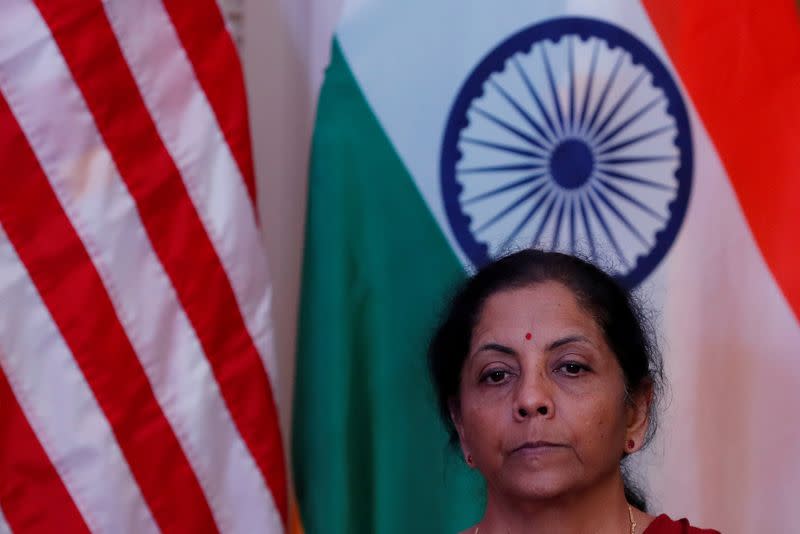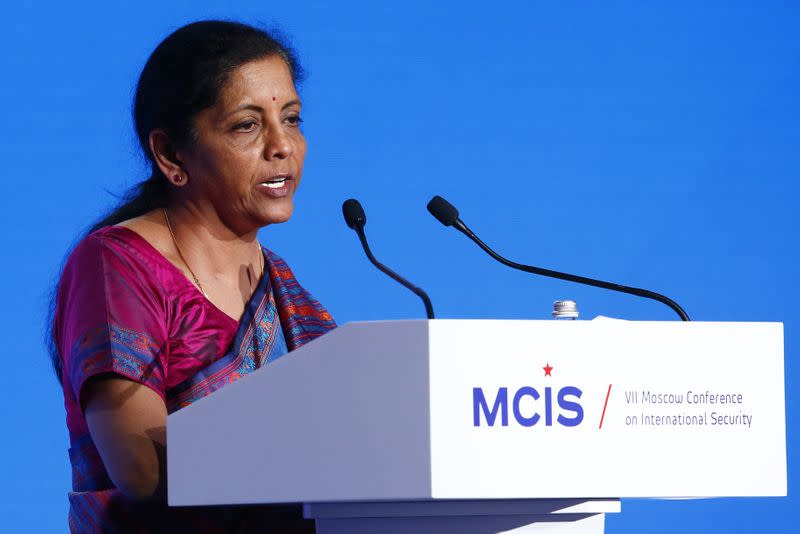India to ease restrictions on foreign ownership in defence ventures
NEW DELHI (Reuters) - India will ease restrictions on the level of foreign ownership in defence manufacturing, Finance Minister Nirmala Sitharaman said on Saturday, in a move aimed at cutting down on imports.
Under the plan, foreign investors would be able to own a stake of up to 74% in defence manufacturing ventures, up from the 49% limit now, Sitharaman told a news conference.
The increase in foreign investments would help reduce a "huge defence import bill" and make India self-reliant in defence production, she said, adding India would also expand the list of weapons that could not be imported.
The move would give a major "incentive to foreign defence manufacturers who want to retain control" in the joint ventures, said Atul Pandey, a partner at India law firm Khaitan & Co, that advises defence firms.
He said major defence manufacturers, such as Lockheed Martin Corp., Boeing, MBDA, Raytheon and Dassault, which all have joint ventures in India, could expand their investments, he said.
The government, facing a big drop in revenue collections amid the coronavirus crisis, has faced calls from policymakers to cuts in spending, including defence imports.
In February, the finance minister allocated 4.71 trillion rupees ($62.1 billion) for defence in the annual budget for 2020/21, including about 1 trillion rupees for capital spending.
Between 2013 and 2017, India was the world’s top arms importer, accounting for 12% of total imports globally, with Russia, Israel and the United States among the top suppliers.
Prime Minister Narendra Modi earlier this year set up a target to double defence exports in next five years, from about $2.4 billion a year now.
($1 = 75.8170 Indian rupees)
(Reporting by Aftab Ahmed and Manoj Kumar; Editing by Alasdair Pal and Edmund Blair)

 Yahoo Finance
Yahoo Finance 

